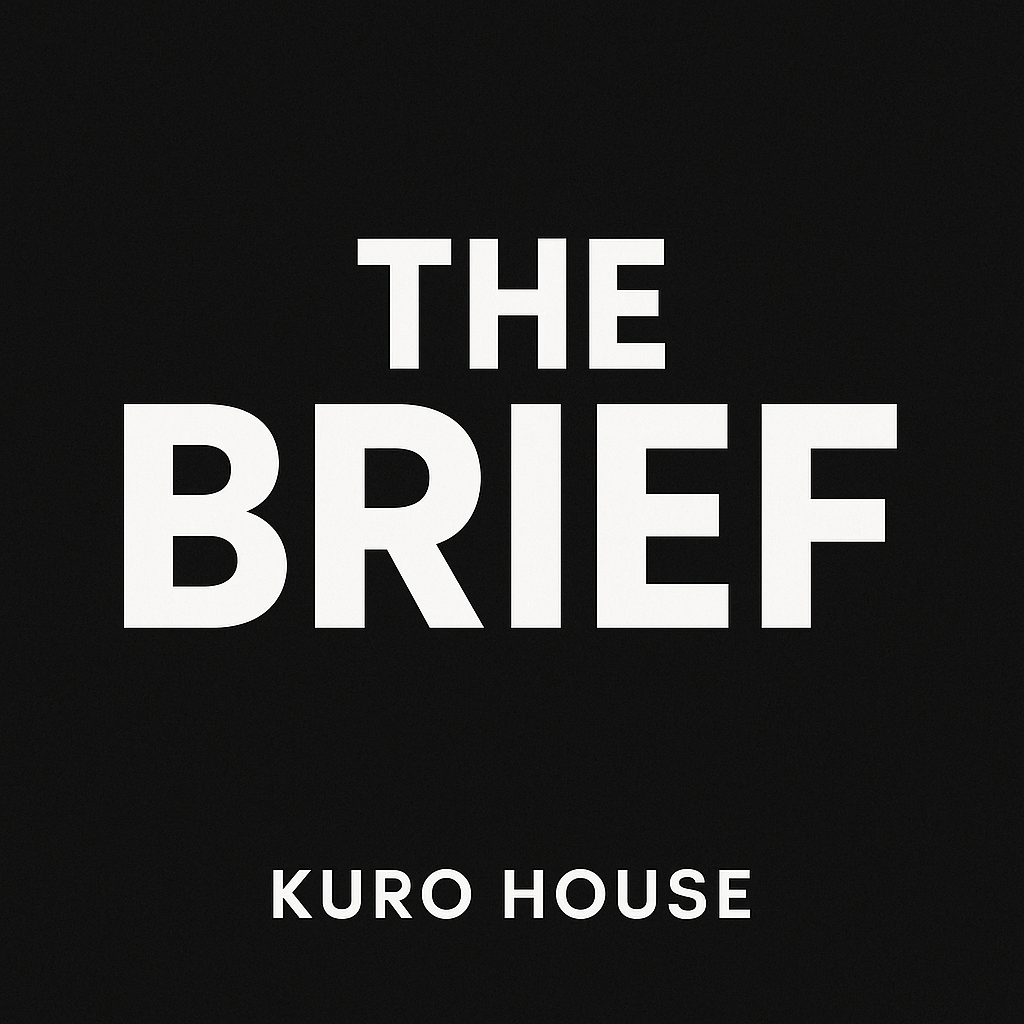Listen To The Show
Transcript
Welcome to The Brief by Kuro House, your daily dose of marketing insight for professionals who want to stay ahead of the curve. Today, we’re diving into stories that reveal how AI is transforming agency life, the evolving leadership at WPP Media, and the shifting sands of media platforms and news ratings. Let’s get started.
Our first story comes from Adweek and spotlights the seismic changes underway in agency life as AI moves from experiment to essential. At Advertising Week New York, leaders from WPP and Assembly Global described how generative AI is now core to everything from creative development to media planning. Elav Horwitz, WPP’s EVP and global head of strategic partnerships and AI solutions, called AI “the most transformative technology of our lifetime.” Agencies are no longer just dabbling—they’re operationalizing AI at scale. For example, Assembly’s Stage platform powers cross-channel reporting and analysis, giving teams real-time insight and helping larger clients spot connections across their media mix. At WPP, 70,000 employees use AI daily, with 50,000 custom agents built internally, democratizing AI across the organization. The panelists stressed that the bottleneck isn’t technology, but change management—helping people trust and embrace new ways of working. They also highlighted a case study for Make Up For Ever, where Meta’s AI background tool was used to swap a plain white background for something more vibrant, boosting engagement and return on ad spend. The creative process is finally evolving beyond the “Mad Men” era, with AI enabling more agile and upstream production. And despite fears that AI might threaten creativity, Horwitz pointed out that tech companies are actually hiring more designers than ever. The upshot? Agencies are restructuring around AI, and the next challenge is bringing clients along fast enough to keep pace.
Next, let’s talk about a major leadership shakeup at WPP Media, as reported by Adweek. Sharb Farjami, CEO of WPP Media North America, is stepping down, with global CEO Brian Lesser taking direct control of the region while a search for Farjami’s successor is underway. Farjami had led the North American operations since January 2024 and was instrumental in winning clients like Adobe, Audible, and Johnson & Johnson, as well as guiding a significant rebranding and restructure in May. That restructure came after major account losses, including Coca-Cola and Mars, but also a big win when WPP Media unseated Carat to win Mastercard’s $180 million global media account. The leadership change comes as parent company WPP undergoes its own transition, with Cindy Rose taking over as CEO in September and promising a “new WPP.” The company is in the middle of a strategic review after reporting a 5.8% drop in revenue. Farjami reflected on his four years at WPP Media as “an extraordinary journey marked by meaningful milestones,” and Lesser credited him with laying the foundation for future success. For WPP Media, this is a pivotal moment as they regroup and look to the future.
Now, let’s shift to a story that’s making waves in the newsletter and publishing world, courtesy of Adweek. The Free Press, one of Substack’s largest and most lucrative publishers, has been acquired by Paramount Skydance for a reported $150 million. Substack cofounders Hamish McKenzie and Chris Best were quick to celebrate the deal on a livestream, hailing The Free Press as a quintessential Substack success story, with over 100,000 paying subscribers and millions of monthly readers. This is the biggest exit for any creator on the platform, and it’s a clear validation of Substack’s model. But there’s a catch: the acquisition raises questions about whether The Free Press will stay on Substack or move to a different platform under Paramount’s ownership. If The Free Press does leave, it could signal a new era for Substack, where its most successful creators are seen as acquisition targets rather than long-term partners. The celebration, then, is tinged with caution—Substack’s greatest success might also be a test of its ability to keep its stars.
Turning to another AI-driven transformation, Adweek reports on Intuit’s marketing revolution under CMO Thomas Ranese. Since joining in December 2024, Ranese—who previously worked at Google, Chobani, and Uber—has focused on three guiding principles: purpose, profit, and people. He’s leading Intuit’s shift from being known as a DIY tax and accounting software provider to a company that blends AI and human expertise to help customers manage their finances, whether they’re filing taxes, checking credit scores, or starting a business. “We’re an AI company at our core,” Ranese told Adweek, emphasizing that the vision is about more than technology—it’s about redefining how Intuit serves its customers. The company is embedding AI deeply into its marketing function, signaling a new era for how financial services brands engage and support their users.
Finally, let’s take a quick look at the latest evening news ratings, courtesy of Adweek’s TVNewser. For the week of September 29, all three major evening news broadcasts—ABC World News Tonight, NBC Nightly News, and CBS Evening News—saw declines in the key Adults 25-54 demo. However, ABC and NBC managed to grow their total viewer numbers week-over-week, while CBS fell in both categories. ABC World News Tonight, anchored by David Muir, averaged 7.334 million total viewers and 844,000 in the demo—a 2% gain in total viewers but a 1% drop in the demo from the previous week. NBC Nightly News, with Tom Llamas, averaged 5.8 million total viewers and 775,000 in the demo, up 2% in viewers but down 4% in the demo. CBS Evening News lagged behind with 3.593 million total viewers and 399,000 in the demo, dropping 4% and 5% respectively. Compared to last year, the demo numbers are down across the board, with CBS seeing the steepest declines. These shifts reflect ongoing changes in how audiences consume news, with the demo numbers highlighting the challenge of retaining younger viewers.
That’s all for today’s Brief. We’ve seen how AI is reshaping both agencies and brands, how leadership changes are setting the stage for new chapters at industry giants, and how the business models of platforms and publishers are being tested in real time. As always, the only constant in marketing is change—and the winners are those who adapt fastest. Thanks for tuning in, and we’ll see you tomorrow for more insights to keep you sharp.

